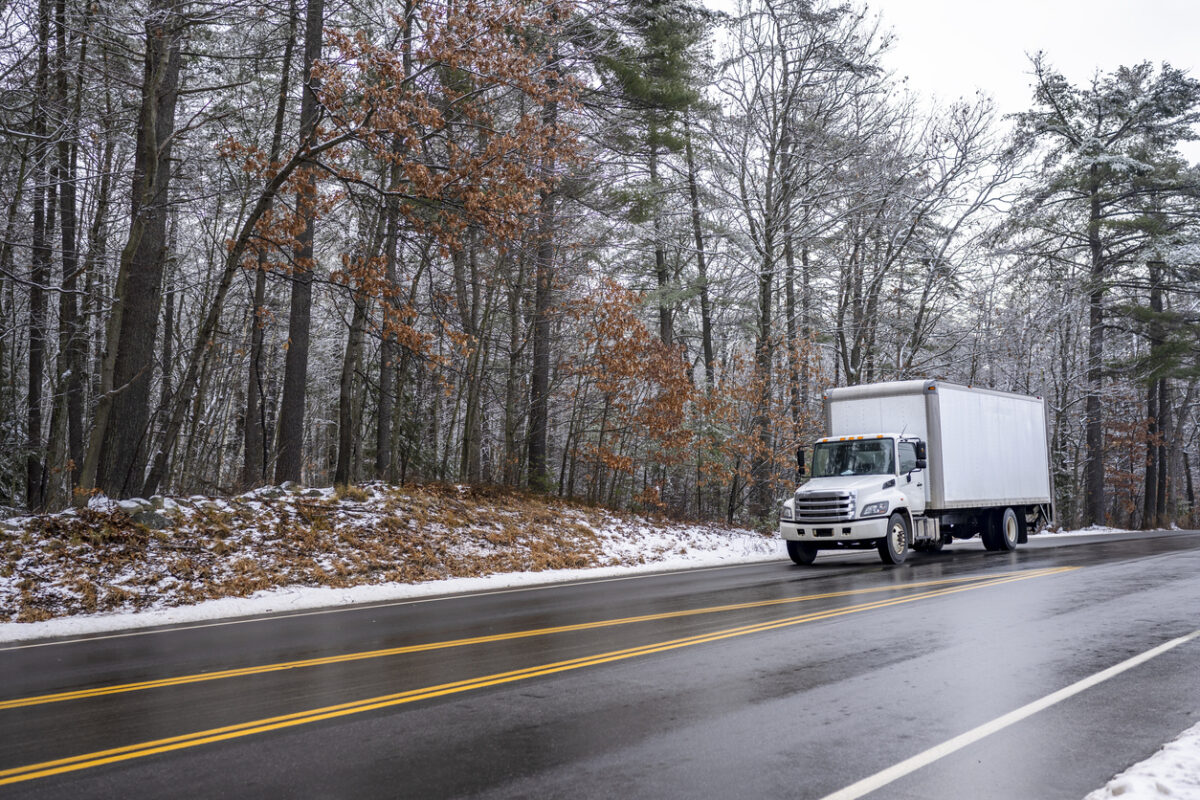Winter driving can be challenging, even for the most seasoned commercial truck drivers. Icy roads with reduced traction coupled with poor visibility make it hard to handle loads and for big rig drivers to stop. According to the Federal Highway Administration (FHWA), 70% of roads in the United States are in snowy areas, increasing the risk of an accident.
Prioritizing safety is essential for the well-being of drivers and vehicles and for maintaining a strong CSA (Compliance, Safety, Accountability) score.
A good CSA score can impact everything from insurance premiums to securing contracts with shippers and brokers. Here are some key ways to stay safe on the road and protect your safety record this winter.
- Inspect Vehicles: Before heading out in winter conditions, ensure each truck in your fleet is fully prepared for the elements. Start with a comprehensive maintenance check, paying close attention to tires, brakes, and fluid levels. Snow chains or heavy-duty windshield wipers may be legally required in areas with severe weather. Regular maintenance can prevent roadside breakdowns and accidents, helping keep your fleet—and your safety record—in excellent condition.
- Monitor Weather Conditions Closely: Winter weather is unpredictable, so drivers must stay informed on conditions before and during their trips. Encourage drivers to check weather forecasts regularly and use real-time updates via apps, CB radio, or GPS. If they encounter dangerous conditions, drivers should feel empowered to adjust their routes or stop until it’s safe to continue. Minor delays are far less costly than accidents or lowered CSA scores due to unsafe conditions.
- Prioritize Driver Rest and Alertness: Cold temperatures and hazardous driving conditions can quickly lead to fatigue. Ensure your drivers are well-rested and equipped with warm gear before setting out. Adhere to Hours of Service regulations, encouraging breaks to help drivers stay focused and alert. A well-rested driver is safer and more responsive, reducing risks to themselves and others on the road.
- Secure Cargo Thoroughly: Winter weather adds extra challenges to cargo security. Remind drivers to double-check their tie-downs and regularly inspect cargo en route. Properly secured cargo reduces accident risk and helps avoid CSA violations related to unsecured loads.
- Have Proper Supplies On Hand: Heavy snowfall and ice conditions frequently cause extended road closures, leaving drivers stranded for extended periods of time. Plan ahead of time and stockpile the necessary goods on the truck. To survive through the most extreme circumstances, keep a three—to four-day supply of water and food on hand. Keep spare battery charges for communication devices in the truck.
Winter driving comes with risks, but with proper preparation, cautious driving, and secure cargo, your drivers can stay safe and help uphold your company’s CSA standards. Maintaining a clean safety record keeps insurance rates manageable, opens doors to more contracts, and contributes to safer roads for everyone.

